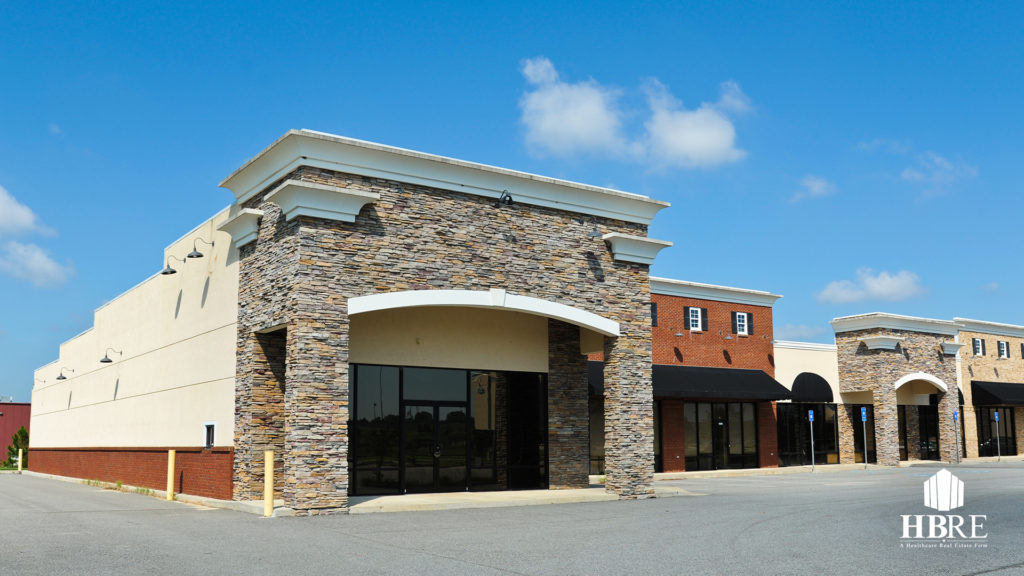Commercial Real Estate and Property Vacancy
In the commercial real estate (CRE) industry, we often discuss vacancy rates for different properties types. The market is constantly fluctuating, and the vacancy rates per CRE sector adjust accordingly. For property owners, vacancies are costly and not an issue they want to face often or for a long duration.
In light of the pandemic and recent economic events, many landlords can see the benefits of hosting healthcare tenants. Landlords with vacancies may not have existing medical properties, but they can transform their facilities to accommodate the medical industry. With the viability of the healthcare sector, it’s no wonder that healthcare tenants are the prime candidates to fill a vacancy.
Healthcare Groups Are Ideal Commercial Tenants
The medical sector differs from other CRE property types. As we saw during the pandemic, the nature of the medical industry makes it less susceptible to an economic downturn. Like other industries, the healthcare industry experienced closures and job loss. And yet, it bounced back to a healthier state within a few months. Many vital medical treatments require a physical commercial property, making the medical sector a more stable investment option.
Medical professionals also differ from other commercial tenants in their lease time frames. Since the buildout of a medical facility is often quite expensive, they tend to stay in the same location for a longer period of time. A medical tenant can remain in a facility for 10 to 20 years minimum, allowing the landlord to avoid a vacancy.
How to Attract Healthcare Tenants
Healthcare professionals with specific specialties have varying property needs. But a few key components offer value to the sector as a whole. Location, zoning requirements, and interior structure or adaptability are some general property features to note. Beyond that, healthcare tenants look for properties that can suit their guidelines.
Medtail and Non-Traditional Healthcare Spaces
In recent years, outpatient medical groups have adopted vacant retail locations, creating the term “medtail.” Some landlords with office space vacancies are now looking to convert their facilities to house tenants in the life sciences industry. And there are a variety of healthcare properties that fall within the adaptive reuse category.
Landlords looking to fill a vacancy in a non-traditional healthcare facility need to identify what type of medical tenant they want. They should tailor their marketing plan to the needs of that type of medical group. For example, does the facility have enclosed offices that could act as individual patient rooms for general practitioners? Does the building have a lobby that could function as a waiting room? Does the property have flex space that could serve dentists, physical therapists, or pediatricians who host telehealth appointments?
Aside from the interior structure, landlords can capitalize on their locations. Is the property surrounded by shops and restaurants that could serve patients and medical staff? Does the community infrastructure provide exceptional transportation options? These location amenities are significant aspects to market to a prospective healthcare tenant.
Existing Medical Properties
Landlords seeking to fill a vacancy within an existing medical property should review their tenant search strategy. What type of medical property has the vacancy? Is it conducive to a variety of medical tenants or ideal for a specific medical specialty? Landlords with existing medical facilities should make sure they hire medical real estate advisors with the resources to showcase the property to the best possible candidates.
Is a Healthcare Tenant Right for Every Property
While healthcare tenants are beneficial, they all vary in size and have different property needs. Landlords will need to carefully choose the right healthcare tenants to fill their vacancy. Medical real estate advisors have the skills and tools to assist landlords looking for a medical tenant. Their experience allows them to recognize what property qualities they should market to new tenants. Medical real estate advisors can also recommend changes to increase property value or make it more attractive to prospective tenants. Landlords looking to fill a vacancy with a healthcare tenant can trust medical real estate teams like HBRE to guide them through the entire transaction.
If you are interested in learning more about investing in commercial real estate, or if you have questions about buying, selling, or leasing a commercial property, please contact an HBRE advisor. Our team of experienced CRE professionals have the skills and insight to assist with all property transactions. To reach out to us directly, email [email protected] or call 615-564-4133.




